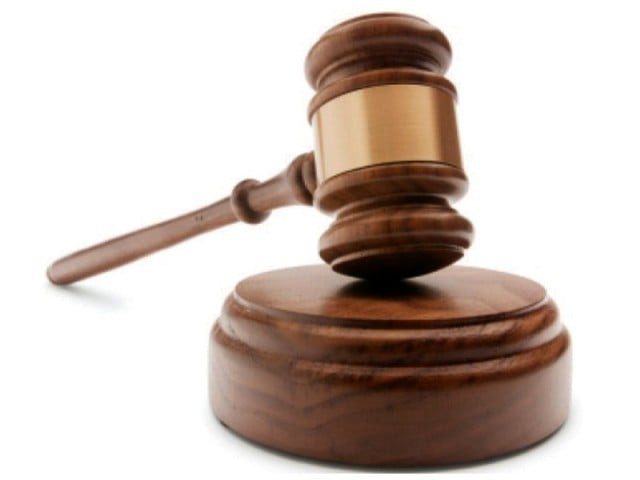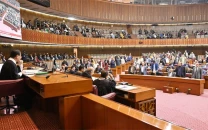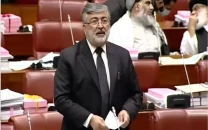Legal fraternity urges judiciary to remain above the fray
Legal experts believe the top court and judiciary as a whole must be impartial

With the feud between ruling Pakistan Tehreek-e-Insaf (PTI) and former prime minister Nawaz Sharif’s party showing no signs of slowing down, all eyes are now set on the role of superior judiciary in the country.
Legal experts believe the top court and judiciary as a whole must be impartial in the ongoing confrontation between the two political parties in the country. They urged the senior judges to stay above the fray and remain neutral towards the political situation.
“Passing avoidable remarks by the courts while hearing cases often exposes the court and concerned judges to criticism,” said a statement issued by the Pakistan Bar Council (PBC).
Such remarks, the statement said, undermine the neutrality and independence of the court and the presiding judge. “It shakes the confidence of the people in the system of dispensation of justice,” said the highest elected body of lawyers.
Hearing a recent case regarding the arrest warrant of former prime minister Nawaz Sharif, who according to the government is an absconder, Islamabad High Court’s Justice Mohsin Akhtar Kayani made certain remarks, that senior lawyers believe were ‘disappointing’.
The former prime minister’s Pakistan Muslim League Nawaz (PML-N) has always had a love-hate relationship with the country’s judiciary. For the restoration of their government in 1993 to the most recent dismissal of former prime minister Nawaz Sharif.
Soon after the judiciary was restored in 2009, the PML-N breathed a great sigh of relief. The plane hijack case that triggered the demise of his government and forced the family to accept life in exile, was set aside by the supreme court. But the bonhomie came to an end in July 2017.
With less than a year to go in his term, the sudden ouster after the highest court in the country disqualified him in a corruption case. That triggered a period of cold war between the ruling party and the Supreme Court. The PML-N decided to launch a media campaign targeting the judiciary. In reaction to the ruling party’s campaign against the judiciary, then chief justice Saqib Nisar became hostile towards the government.
Cases were registered against the PML-N workers for using scandalous language against the former chief justice. The party wailed on every platform, accusing the court for being an ally of the establishment. Party leadership even raised concerns about the arrest of Nawaz Sharif and Maryam Nawaz, his heir apparent, days before the general election. The party suffered a heavy defeat by the PTI and was eventually sidelined from mainstream politics.
The acrimonious relationship between PML-N and the judiciary continued even into justice Asif Saeed Khosa’s term as Chief Justice of Pakistan. While the PML-N chief received some relief during his time at the helm, the party was generally unhappy when their leader’s bail was not extended beyond eight weeks.
The decision was unlikely to earn the judiciary any applause from PML-N’s archrival, the ruling PTI.
Expressing disappointment, PTI lawyers termed the court’s decision as ‘unprecedented relief’ for the former prime minister who faces a litany of charges.
Lawyers in Islamabad believe the courts must perform their duties in a consistent manner and refrain from giving the impression that they function under some influence. Despite the troubled relationship with the PML-N, the courts have dished out concessions to a long list of PML-N leaders. In National Accountability Bureau (NAB) cases, key PML-N leaders have been granted a bail by the court. However, opposition leader Shebaz Sharif, who also happens to be the ousted prime minister’s brother was unable to secure a pre-arrest bail and is now under NAB custody.
Talking about the balancing act performed by the court, experts pointed out that the judiciary rescues the PML-N in recent times. “In 2014, the Supreme Court issued a restraining order at the peak of the sit-in in Islamabad, which virtually paralyzed the capital.”
Similarly, in 2014, a larger bench rejected PTI leader Ishaq Khan Khakwani’s petition seeking the disqualification of prime minister Nawaz Sharif on charges of providing false statements. In a similar move, the court also rejected the PTI’s petition that alleged that the 2013 election was rigged.



















COMMENTS
Comments are moderated and generally will be posted if they are on-topic and not abusive.
For more information, please see our Comments FAQ